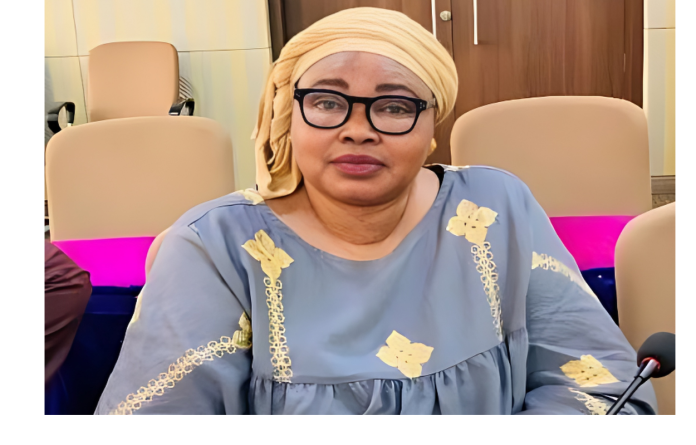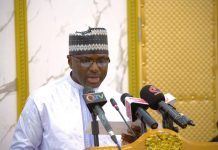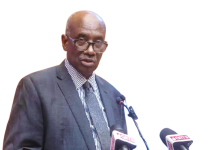The Mayor of Banjul, Rohey Malick Lowe, has admitted that her office did not follow any formal procurement procedures in contracting media services for city events, telling the Local Government Commission of Inquiry that her team operated outside established financial laws and regulatory frameworks.
The admission came during a public hearing held by the Commission, which was created to investigate the financial and administrative conduct of local councils across The Gambia from May 2018 to January 2023. The goal of the inquiry is to enhance transparency and accountability in public service delivery by exposing mismanagement and procedural lapses in local governance.
Appearing before the Commission on Friday, Mayor Lowe was questioned at length by Lead Counsel Patrick Gomez, who focused specifically on a D30,000 payment made to her assistant, Fatou Mbenga, for “media coverage” of a Banjul town hall meeting held on March 19, 2022. The funds were later paid to Touray’s Media Consultancy, a private firm. However, according to documents reviewed by the Commission, there was no procurement process — no quotations, no advertising, no evaluation, and no involvement of the procurement unit or the contracts committee. Mbenga is a former assistant public relations officer of the BCC.
“How did you contract Touray’s Media Consultancy?” Gomez asked.
“The way we were going was that we do as those before us used to do,” Mayor Lowe responded. “This is what the council normally does. We don’t have any process that we follow.”
“If we need GRTS, we call them. If we need the Fatu Network, we call the Fatu Network. That was how we were,” she added.
Lead Counsel Gomez was concerned and pressed further: “Is it that you did not know the procedures involved, or that it was simply disregarded?”
Mayor Lowe replied, “I know what I wanted. We have a program, and I advise them or I tell them to call ABC for them to come or call the media to come. But the process of calling the media, truly speaking, I know some of the people we used to pay, and that is their work.” Lowe said they directly invite the media they want to engage without following any procurement methods.
At that point, Gomez gave a clear explanation of why procurement procedures exist. He stated that the purpose of following due process in procurement is to ensure fairness and the participation of all, noting that “all media houses should have equal opportunity” to compete for public contracts.
He emphasised, “There is a procurement unit. There is a contracts committee. There are procurement regulations and a Procurement Act, which requires that procurement activities must be done in a certain way.”
Gomez added that while it is not unlawful to request funds, it becomes illegal when those funds are used for procurement without following the correct process. “To request payment is not unlawful. But to be given monies that are meant to follow another procurement process — for you to do your own procurement — would be wrong. That is totally wrong.”
Mayor Lowe then acknowledged her fault: “I agree with you. I totally agree. The process was totally wrong.”
She further admitted that her office had simply followed inherited practices without regard to what the law required. “I said earlier on, we just inherited it like that. If the day before yesterday we had a program, the same way we did it, we would still do it the same way,” she said.
But Gomez warned that this approach fosters exclusion and undermines accountability. “When procurement is done this way,” he said, “it denies others the chance to participate, and it becomes unfair.”
When asked whether she had any knowledge that the procurement laws applied even to media contracting, Lowe said: “To be quite honest, I do not know that we should follow the procurement, even for the media.”
The Commission reminded the Mayor that The Gambia’s Public Procurement Act makes no exception for the type of service being procured — whether it be fuel, food, or media. “There is no special category for media coverage,” Gomez stated.
The Mayor, who was elected in 2018 and re-elected in 2023, concluded her testimony on the issue with a pledge to change course. “If at all, it is today, it will be done this way,” she said. “I came here to learn.”
Her appearance revealed not only personal oversight but also deeper institutional failings at Banjul City Council — a local authority where informal methods have long prevailed over established rules. The Mayor consistently stated that her intentions were not malicious, but rather guided by what she understood to be common council practice, as she was doing as her predecessors.





















